WATER
The University maintains two separate pipelines for drinking and recycled water. To ensure water quality and prevent pollution, they annually send water samples to a third-party laboratory for comprehensive testing and analysis, upholding their commitment to providing safe and environmentally responsible water resources.

Water Policy
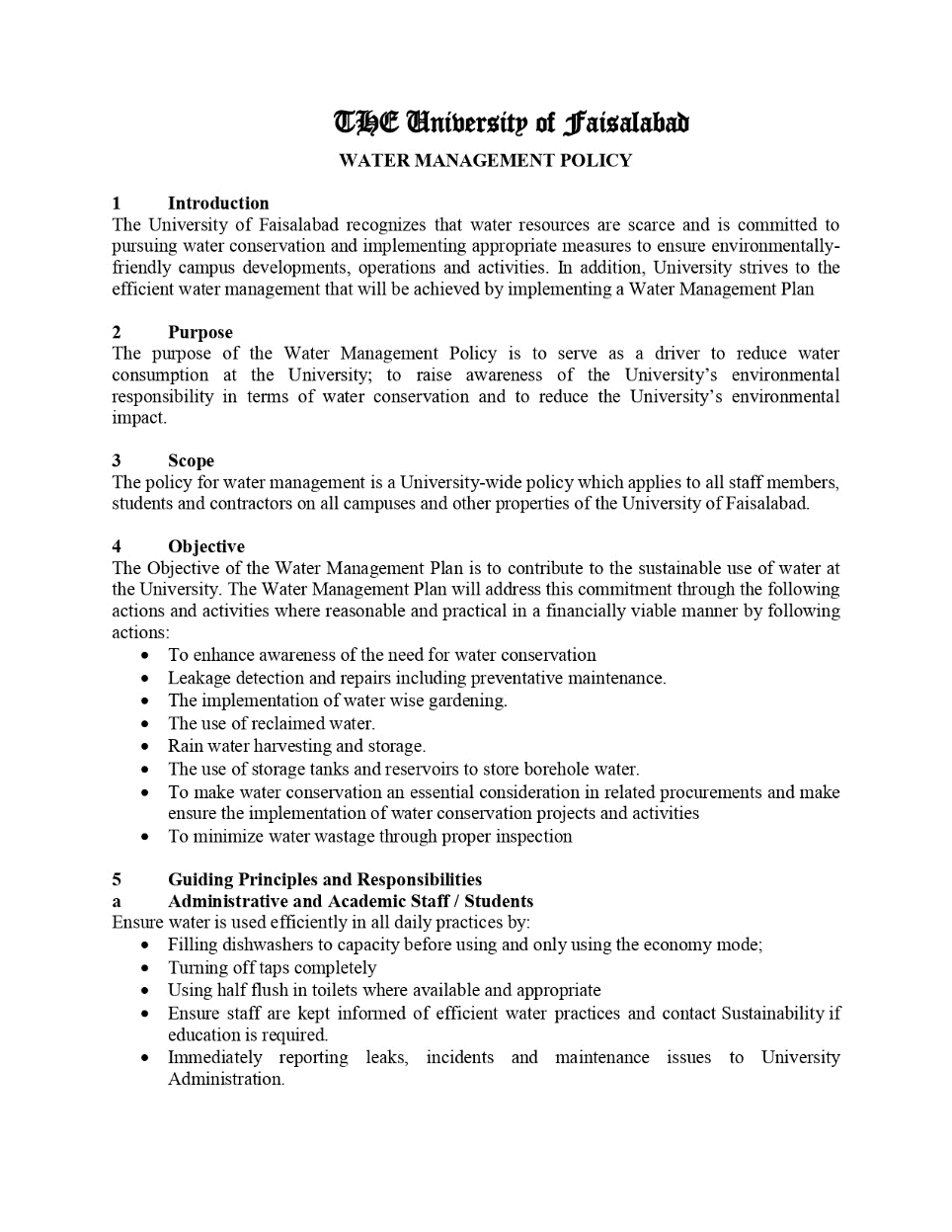

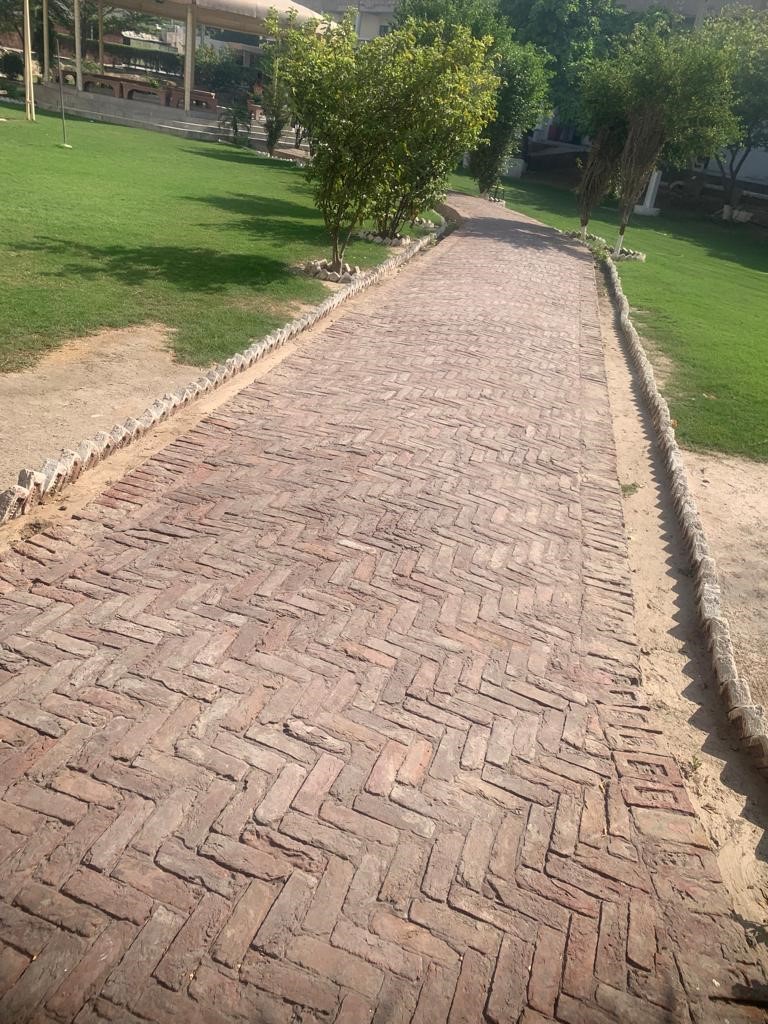
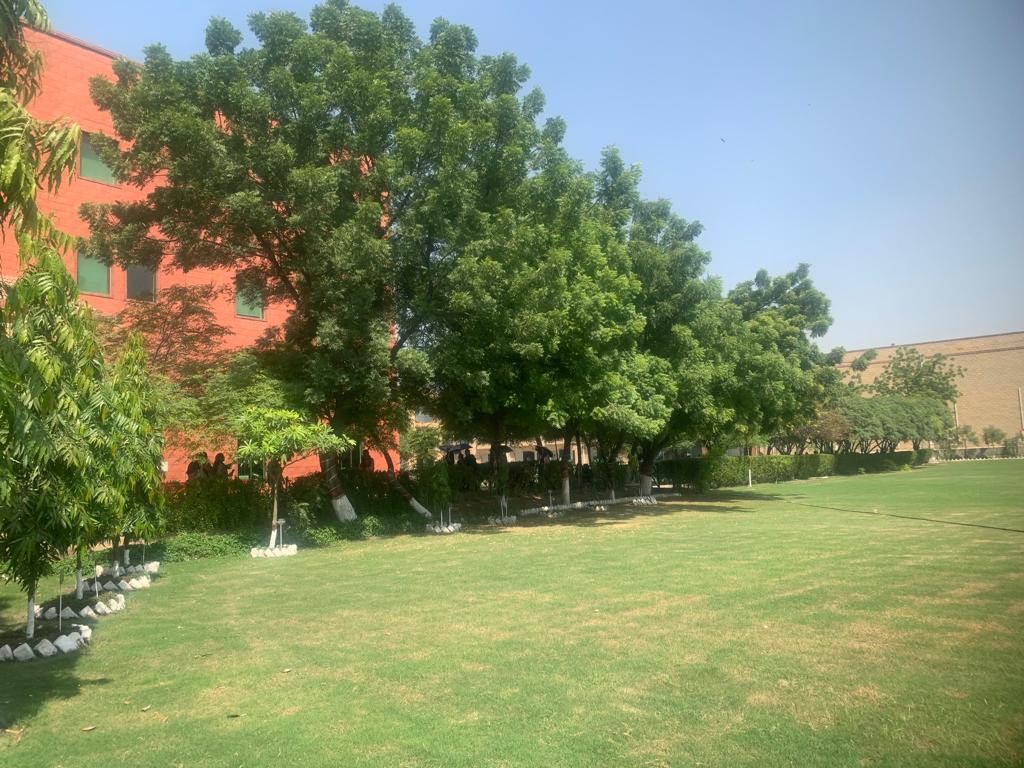
Grounds and concrete paths that absorb the rain water

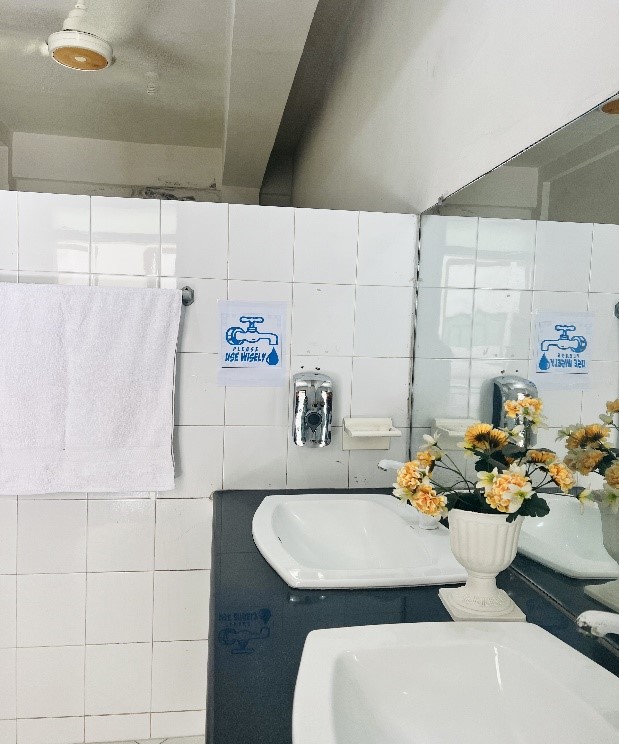
Instructions to use water in native language (Urdu) Instructions to use water wisely
Treated water is a valuable resource at the University of Faisalabad, serving students and staff while being utilized judiciously for various campus needs. It supports gardening, grounds maintenance, washrooms, and road cleaning activities. The integration of water-efficient appliances ensures responsible usage, optimizing the University treated water supply and promoting sustainable water management practices.
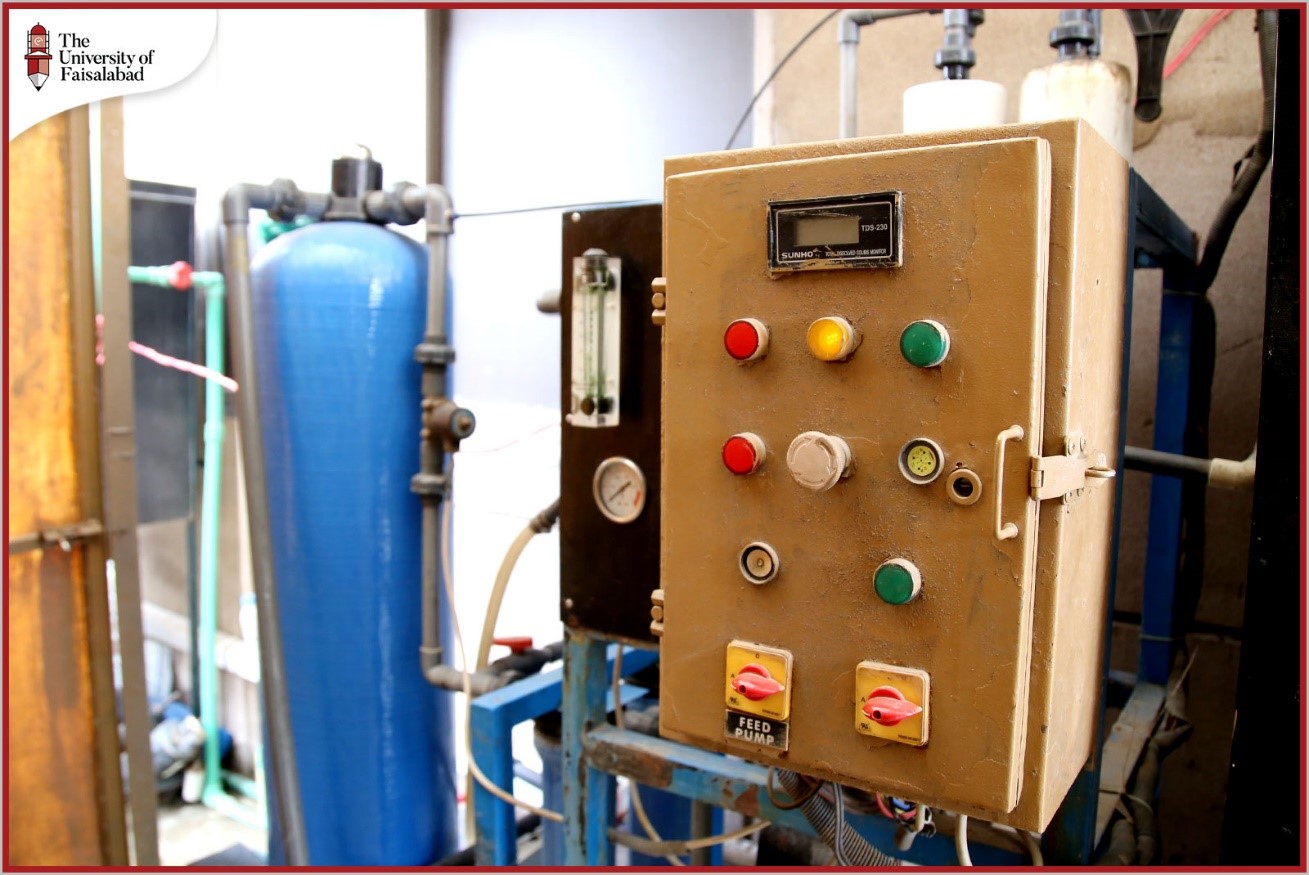
Water Recycling plant

Sprinkle head to water the grounds

Gardening
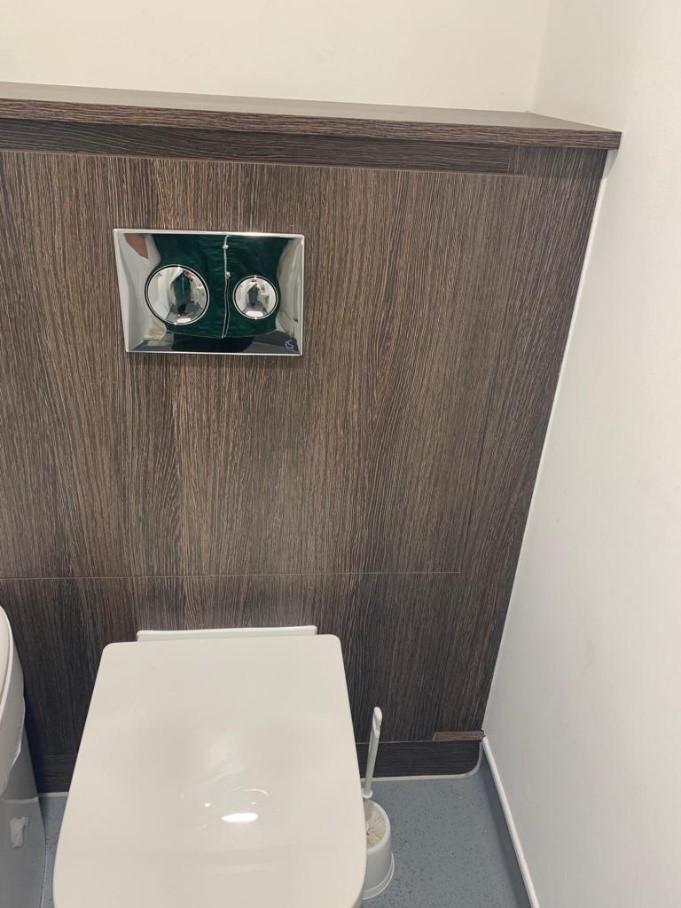
Washrooms
The University has replaced all the conventional water taps with efficient sensor- based water taps, which can reduce water consumption by more than 70 percent within the University campus and the latest flushing system that consumes less water.
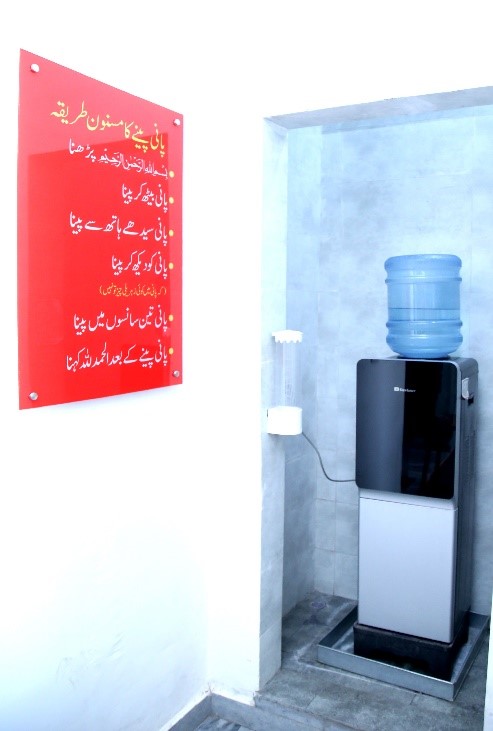
Water Dispenser
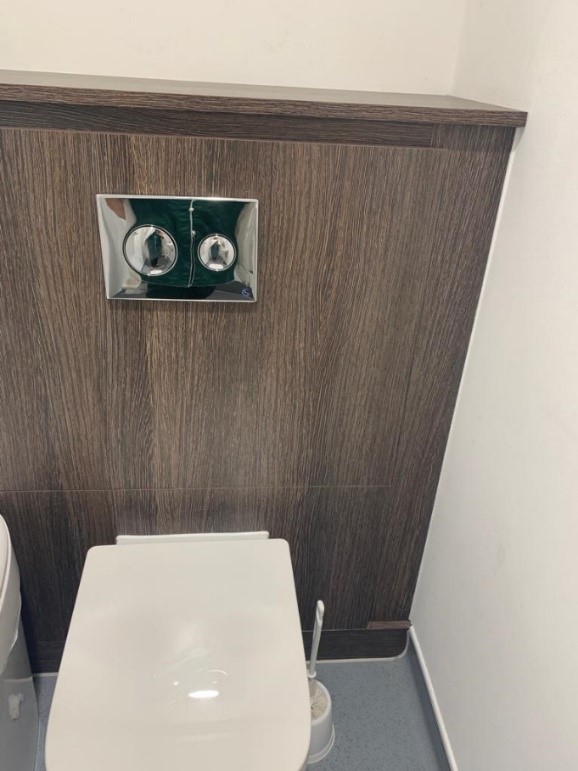
Toilet Dual Flash Flush button to control water flow (via pedal)
Water Sensor Taps
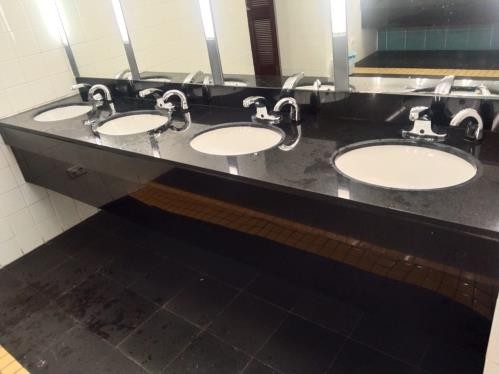

Water Sensing Taps Smart Shower
| Appliances | Total Number | Total Number Water Efficient Appliances | Percentage |
|---|---|---|---|
| Water Dispenser | 110 | 84 | 75% |
| Sensor Taps/Pressure reducing taps | 524 | 329 | 62.78% |
| Flash Tanks | 225 | 126 | 56% |
| Smart Showers | 1000 | 578 | 57.8% |
| Sink | 181 | 92 | 50.82% |
| Total %age | 69.16% |
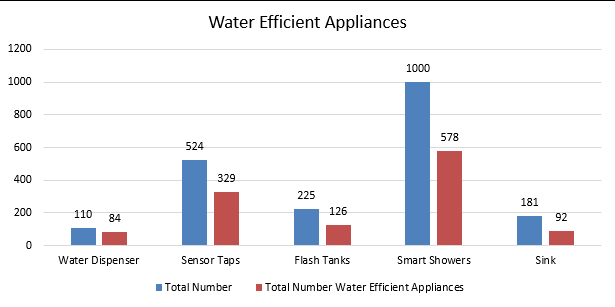
The University of Faisalabad exemplifies its dedication to sustainability and water conservation by ingeniously utilizing recycled water for garden sprinklers, toilets, and gardening. This eco-conscious approach significantly minimizes freshwater consumption and promotes environmental responsibility across the campus.
Implementation of Recycled water:
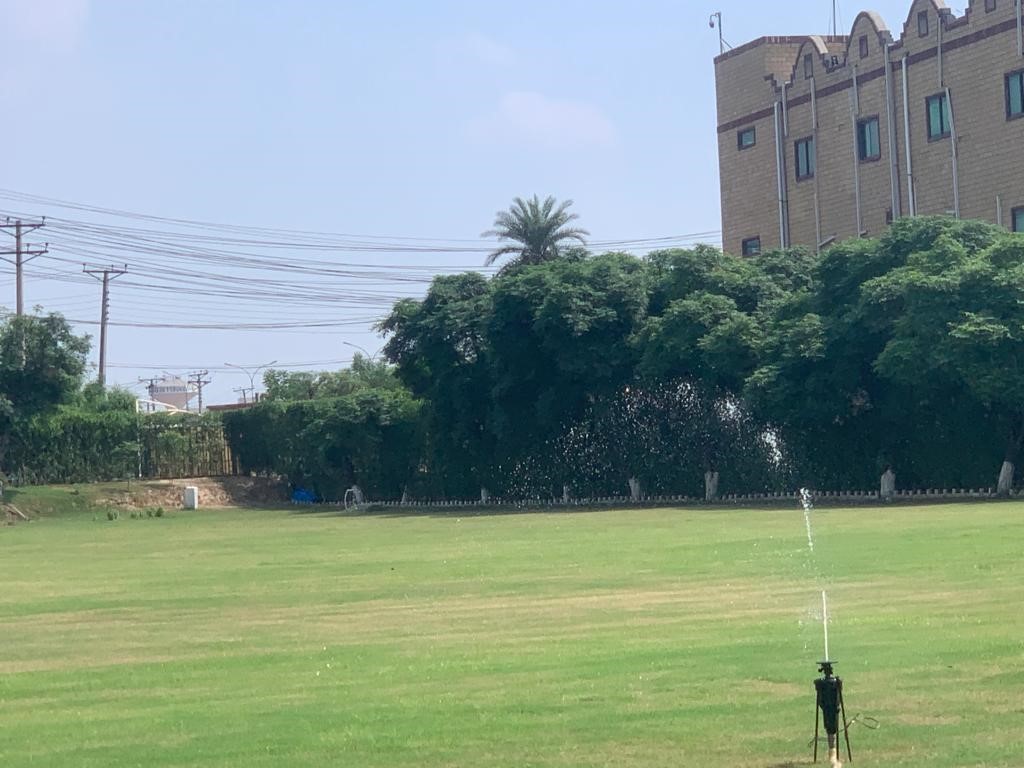
Installing the water pump using sprinklers

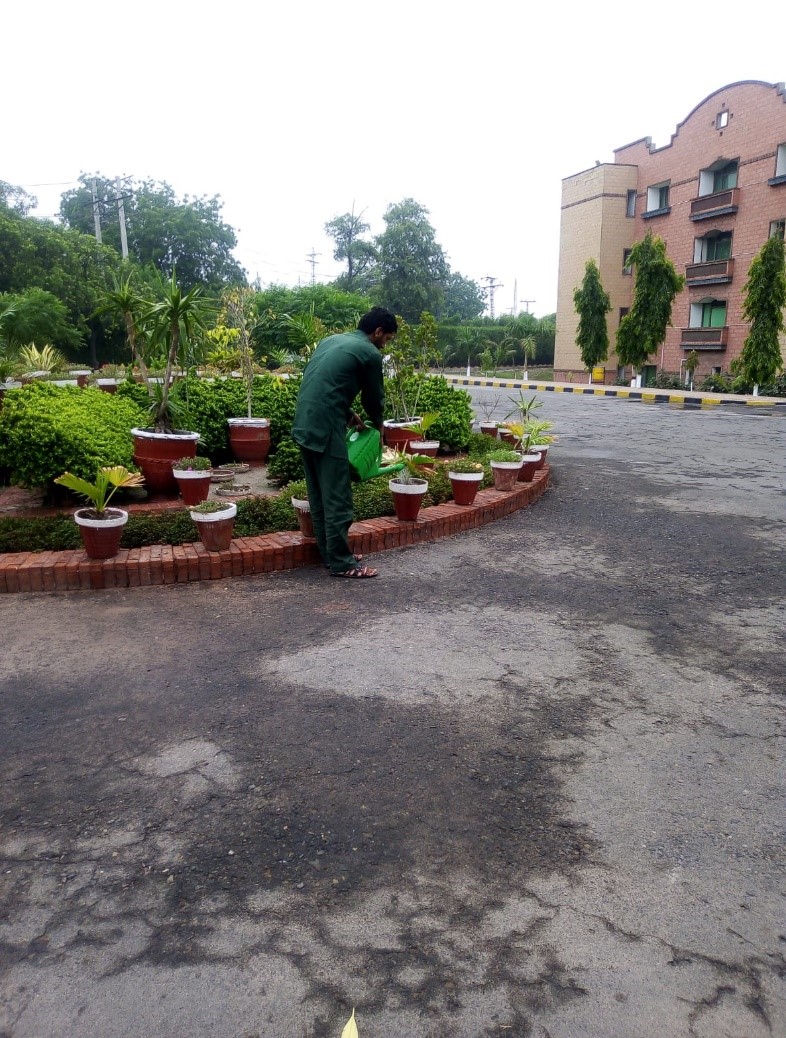
Water is stored in tanks and used for watering trees as an alternative to tap water
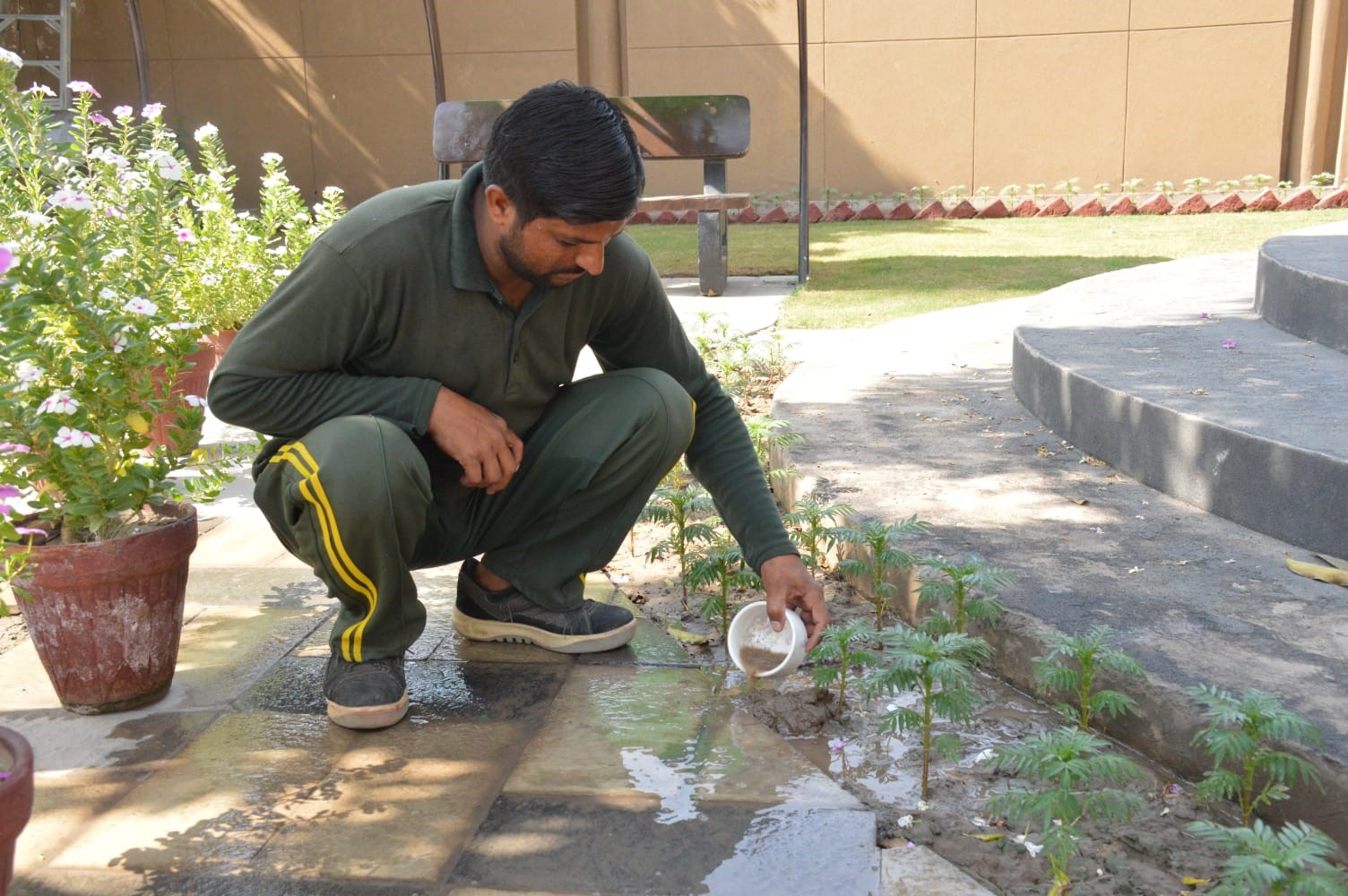
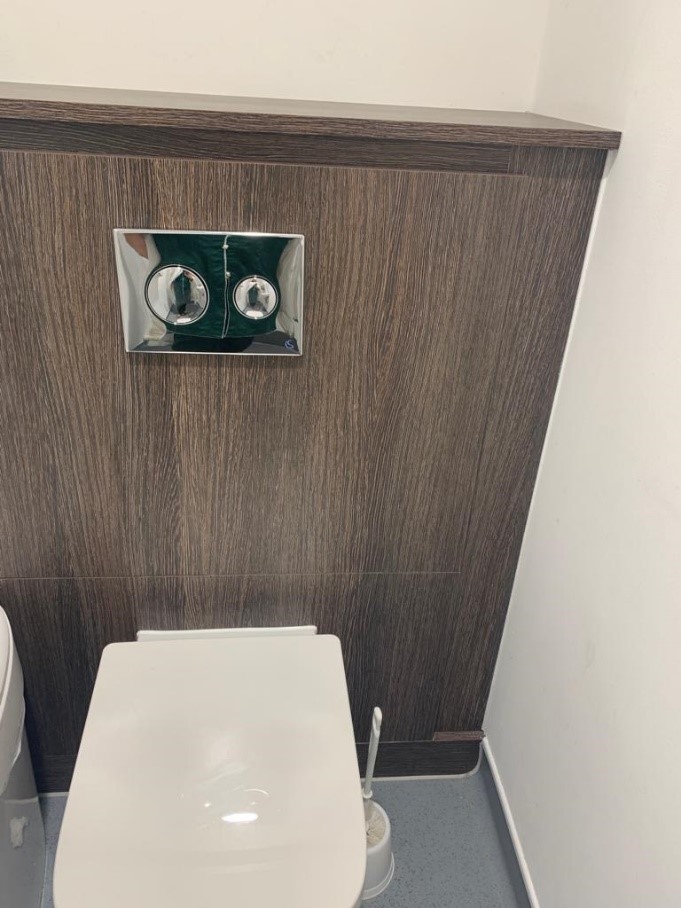
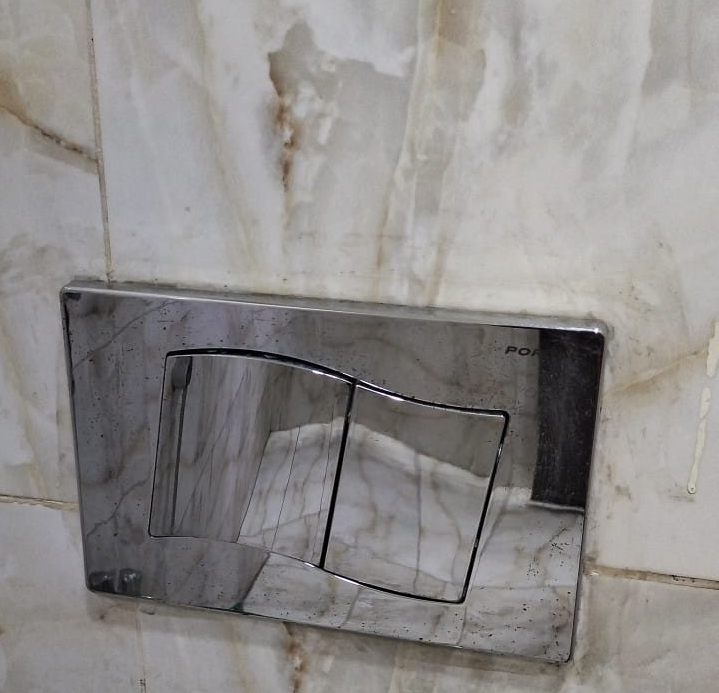
Advanced Toilet flushing
University has planned two projects within the scope of the water recycling program.
Project-I: Biological Treatment for Building Waste Water Drying Treated and Used in Irrigation of The Garden
Project-II: Collecting Rain Water by Building Pond and Using the Garden Irrigation
RAIN WATER HARVESTING:
The Rooftop Rainwater Harvesting technique implemented at the University of Faisalabad has proven highly effective, conserving an impressive 1500.74 cubic meters of water annually. This amount accounts for a significant 29 to 31 percent of the campus yearly water consumption. This underscores the potential for sustainable water management through rainwater harvesting in the region, offering a substantial contribution to water conservation efforts at the university.
The University of Faisalabad has distinct sewerage systems for wastewater and rainwater. Rainwater from building roofs is directed to ponds around the building, while specific buildings collect rainwater for toilet flushing and indoor plant watering, promoting efficient water utilization and sustainability.
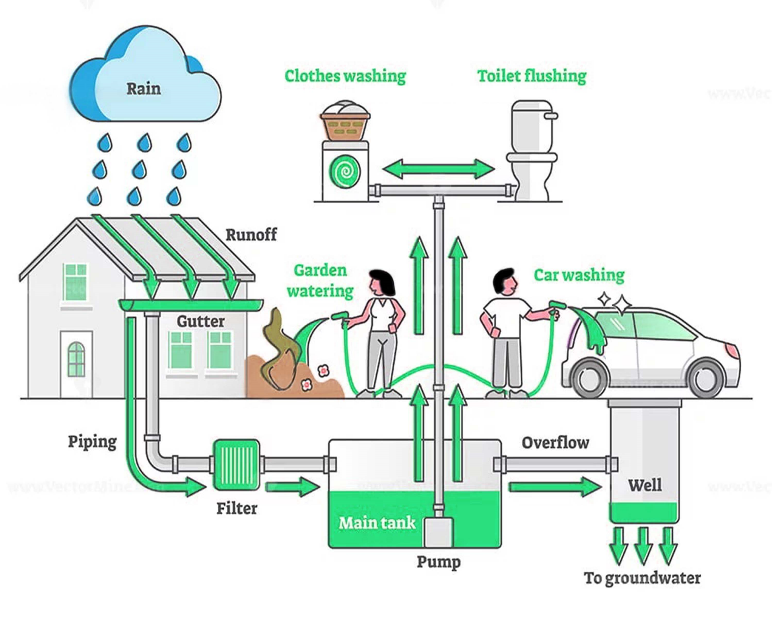
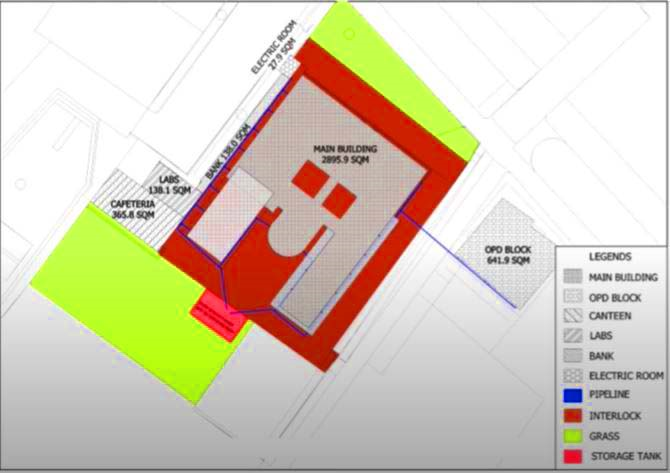
Water Conservation-Rain Water Collection
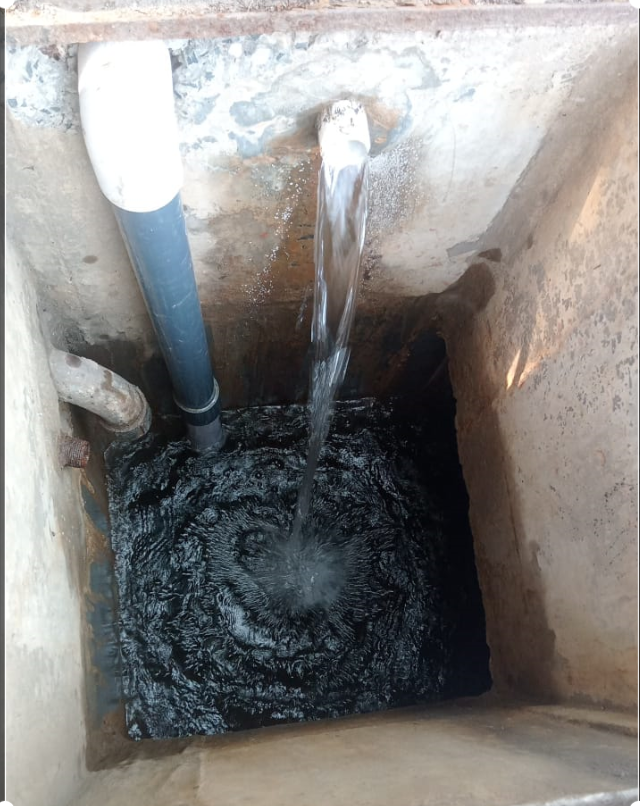

Water Conservation-In Ground Tanks
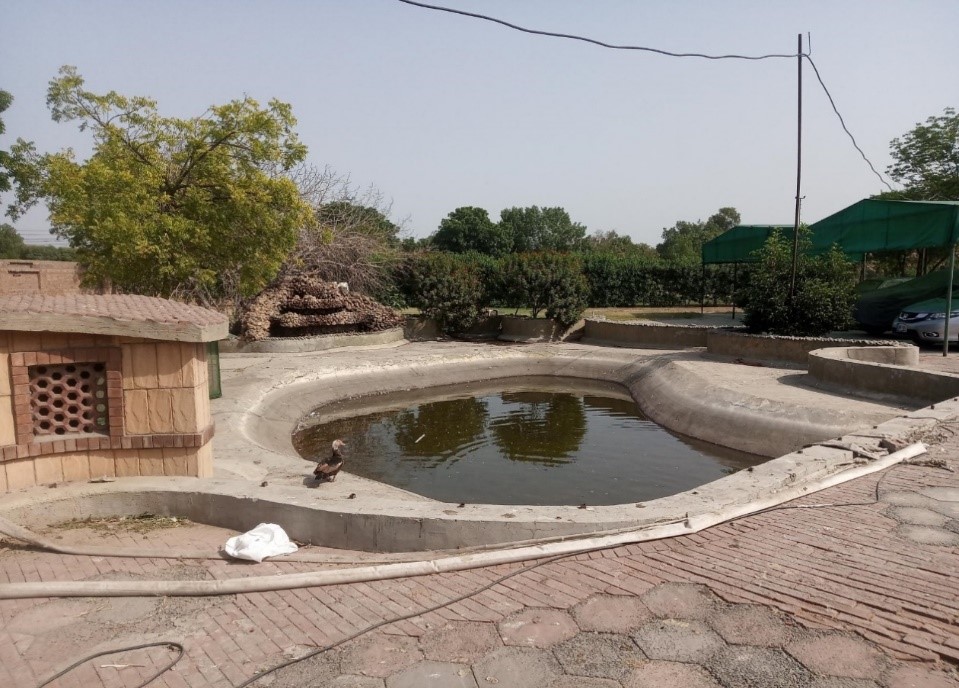
Small Water Conservation Lake
- Estimation of Rainwater Harvesting Potential in an Educational Institute of Faisalabad, Pakistan
Pakistan is on verge of facing severe water scarcity issues by 2025. An exponential increase in population increases the water demand as most of the population depend on ground water. Rain water Harvesting is one of the best methods that can be used to conserve water. This Research aims to determine the total volume of water that can be conserved from Rainfall on the roof top at The University of Faisalabad Pakistan. Results indicated that about 1300 cubic meter of water can be conserved per year which will cover about 20-25 % of the total water demand of the campus if a rainwater harvesting system is installed at the campus.

Figure: Proposed Rain Water Harvesting System
